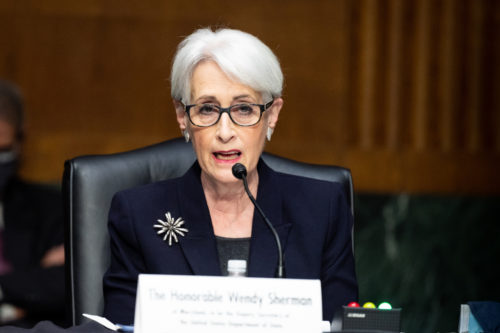Servers in caves in Guizhou: a new third front?


Tencent, the internet giant behind WeChat, is digging caves into the mountains of Guizhou Province, where it intends to keep its servers, according to the company’s CEO, Pony Ma 马化腾 (in Chinese).
In July last year, Apple announced that it would move all data associated with Chinese iCloud accounts to a server in Guizhou. In late February, the Californian company handed over control of its Chinese data to Guizhou-Cloud Big Data (GCBD), which is owned by the Guizhou provincial government.
Guizhou first came on the map as a provider of internet services in 2014, when the provincial government pronounced that “developing the big data industry is a wise choice and the best path for the economic development” of the province, and said it was “investing heavily in the emerging technology-driven sector, given its various applications such as crime prevention, epidemic studies, research evaluation, business analysis, legal citation, and traffic management.”
In 2015, state media announced that Guizhou had launched China’s first “big data pilot zone,” following guidelines issued by the State Council in September that year. The guidelines called for the creation of “a platform for sharing data between government departments,” and for the big data pilot zone to nurture a group of 500 companies in Guizhou, “including 10 leading global enterprises focused on big data application, services and manufacturing.”
Why Guizhou? There are two obvious reasons why Guizhou is an attractive place for the Party to establish a cyber redoubt:
- The Go West strategy, launched in 2006, to encourage investment and commerce in the nation’s poorer western provinces.
- Xi Jinping protegé Chen Min’er 陈敏尔 was deputy Party boss and then Party boss of Guizhou between 2012 and 2017 (see New York Times profile – paywall). At the very time that Xi was establishing his control over the Central Leading Group for Internet Security and Informatization and leading a rhetorical charge for the concept of internet sovereignty, Chen was in charge of planning the economic development of Guizhou.
- A new Third Front? In 1964, Mao Zedong initiated the Third Front Movement (三线建设 sānxiàn jiànshè) to move heavy industry, especially defense factories, to China’s interior — Shaanxi, Sichuan, Guizhou and other western provinces. Mountainous, remote from sea and land borders, and poor: why not build rocket factories in caves in such places? If servers are the new missiles, building a cyber-base in Guizhou is straight out of Mao’s playbook.
A quartet of links
- Should Xi Jinping be China’s president for life? In this video, naughty BBC correspondent Stephen McDonnel hassles National People’s Congress (NPC) delegates about the removal of presidential term limits.
- In Tennessee, a legislator wrote a letter to three universities in the state warning them of the “danger” of Confucius Institutes.
- “North Korean exports are at a virtual standstill,” says South Korea’s Chosun Ilbo: “North Korea’s exports to China were worth US$1.65 billion last year, down 37 percent on-year.”
- “Each year, as March 5 – known in China as ‘Learn from Lei Feng’ Day — approaches, I feel sort of nostalgic. In the early 1990s, Lei Feng and I became inseparable.” Read on at the L.A. Review of Books China Channel.






